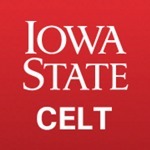Web talk, Lightboards and Asynchronous Lectures: Improving content and problem discussions for students
| Date/Time: | Friday, 25 Sep 2020 from 3:00 pm to 4:00 pm |
|---|---|
| Location: | online only - via Zoom from Yale University |
| URL: | https://bit.ly/2F2WUtQ |
| Contact: | |
| Phone: | 000-000-0000 |
| Channel: | Center for Excellence in Learning and Teaching |
| Categories: | Training, development |
| Actions: | Download iCal/vCal | Email Reminder |
This allows students to see their instructor, their personality, and replicate the delivery of an in-person lecture, all in an asynchronous manner. In this talk, we will discuss different lightboard studio setups, how to plan and script videos, how to shoot and edit videos, and finally, discuss some best practices for using a lightboard.
To join this web talk
Register via Web talk, Lightboards and Asynchronous Lectures: Improving content and problem discussions for students - Zoom registration website.
Series Overview
The Scientific Teaching in Practice Webinar Series extends the learning and dialogue that occurs at the Summer Institutes (SI) on Scientific Teaching into a year-round community that supports and inspires evidence-based teaching. Each month, the SI community is invited to attend an interactive webinar related to the practice and/or dissemination of scientific teaching. The webinar will be facilitated by someone experienced in that area, integrating significant time for questions and open discussion. Webinars are open to SI alums as well as those generally interested in scientific teaching and evidence-based teaching strategies.
Coordinated by the following
The series is brought to you by Yale Poorvu Center for Teaching and Learning, Howard Hughes Medical Institute, and National Institute on Scientific Teaching.
This web talk is promoted by the Center for Excellence in Learning and Teaching (CELT).

